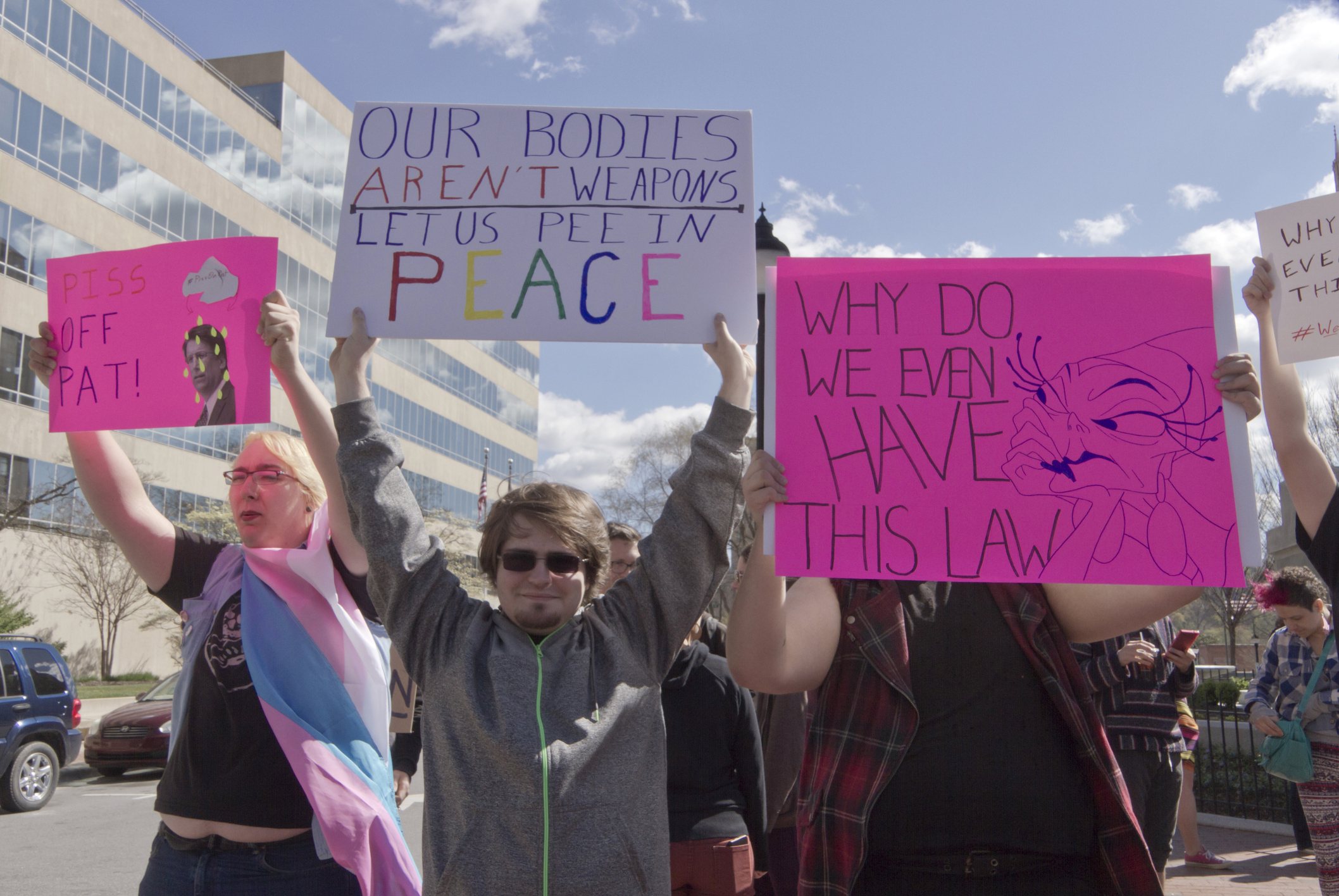Since 2019, at least 12 states have passed laws and policies restricting trans and non-binary people’s bathroom use in schools and public spaces, with Utah being the latest. Signed by Republican governor Spencer Cox late last month, Utah’s new law restricts trans people’s access to public restrooms and other facilities in public schools and government-owned buildings, including public hospitals and Salt Lake City International Airport.
The law only makes exceptions for those who have both changed the gender markers on their birth certificates and had gender-affirming bottom surgery. Individuals found in violation of the law could face misdemeanour loitering charges, and government-owned entities could be fined $10,000 per day for failing to resolve a violation.
The overall response to the passing of this law has been underwhelming. While a group of protestors marched inside the Utah State Capitol in opposition of the measure before it came to a vote in the state senate, the state has not faced any major backlash. The Sundance Film Festival took place in Park City, Utah, this year, as it has since 1985; musicians like Bad Bunny and AJR continue to hold concerts in the state; and the University of Utah is still slated to host the NCAA men’s basketball tournament next month.
But nearly eight years ago, when North Carolina passed a bill in 2016 banning trans people from using bathrooms that align with their gender identity, there was a massive public backlash. Businesses, musicians and even the NBA all boycotted the state in protest of the discriminatory measure, prompting lawmakers to repeal the law in 2017.
Experts say that rather than the bills’ content, it’s the country’s political landscape that has changed so drastically since 2016.
“When you look at North Carolina versus what’s happening now, I think the unfortunate reality is that all of us are inundated with the amount of anti-transgender hostility that legislators are churning out nonstop,” Peter Renn, senior counsel at Lambda Legal, tells Xtra.
According to Ben Greene, a trans advocate, educator and speaker, the backlash North Carolina received in 2016 was a “stern slap on the wrist,” but any similar response now would be “too little too late.”
“Nearly half the country is adopting a litany of strict and draconian restrictions on transgender people,” Harper Seldin, a staff attorney for the ACLU’s LGBTQ & HIV Project, said in a statement to Xtra. “The kinds of corporate boycotts that helped to defeat HB2 are blunt instruments when what will actually defeat these bills is litigation, legislative advocacy and expanding the movement for LGBTQ2S+ equality.”
In recent years, corporations have also faced repeated backlash from conservatives for showing even minimal support for the LGBTQ2S+ community, prompting many businesses to abandon diversity initiatives and refrain from speaking out on issues impacting queer and trans Americans.
Utah is not the only state to unceremoniously pass a bathroom ban. North Dakota, Kansas, Oklahoma, Iowa, Alabama, Kentucky, Tennessee, Arkansas, Virginia and Florida have all passed laws regulating bathroom access, while another five states—Ohio, South Carolina, Georgia, West Virginia and Missouri—have introduced bathroom bills of their own. Idaho also pushed through a similar law last year, prohibiting trans youth from using school bathrooms that align with their gender identity, but is currently not in effect thanks to ongoing litigation.
“The kinds of corporate boycotts that helped to defeat HB2 are blunt instruments when what will actually defeat these bills is litigation, legislative advocacy and expanding the movement for LGBTQ2S+ equality.”
While proponents of anti-trans bathroom laws claim that they aim to enforce safety and privacy, those on the receiving end experience just the opposite. Renn notes that these laws are both harmful and unconstitutional, violating Title IX and the Equal Protection and Due Process Clauses of the 14th Amendment.
Most federal courts have “held that bathroom bans are illegal under federal law,” he says, because they “blatantly discriminate against transgender students, putting them directly in harm’s way.” Since they infringe on the right to privacy, they cannot be defended on safety and privacy grounds.
According to Greene, bathroom bans send a very clear and harmful message to trans people. “The message is very much, ‘I don’t want you here. I don’t want you to exist.’ And it does make it really hard to go to public places,” Greene says, adding that it can deter trans people from using public restrooms at all, forcing them to avoid or delay eating and drinking.
Seldin says forcing trans youth and adults to use restrooms that are inconsistent with their gender makes them less safe and denies them the freedom to be themselves in public. “If you cannot use the restroom at school, you cannot go to school. If you cannot use the restroom at work, you cannot go to work,” Seldin says.
“The other piece of this that I think is really damaging is that these bans also out transgender students because they’re not able to use the same facilities as everyone else,” Renn adds. “And so it really compromises their privacy in a way that can place them in immediate physical danger.”
“Every trans person I know is just scared out of their minds to go into a bathroom because we’re very likely to be assaulted,” Greene continues.
The recent death of a non-binary teenager in Oklahoma is just one tragic example of the kind of harm that anti-trans bathroom laws can cause. Sixteen-year-old Nex Benedict, who was an animal lover and fan of Minecraft, was physically attacked by three schoolmates in a bathroom at Owasso High School on Feb. 7 and died the very next day. Benedict was reportedly with another trans student when they were beaten and had been consistently bullied for months before the fight occurred. Oklahoma’s bathroom ban, which specifically targets trans and non-binary youth, was passed in 2022.
“We’re all still trying to get people to understand the significance of what’s at stake,” Renn says, “and that we have to keep the pressure up to stop this discrimination from spreading even further beyond where it’s already been adopted.”


 Why you can trust Xtra
Why you can trust Xtra


